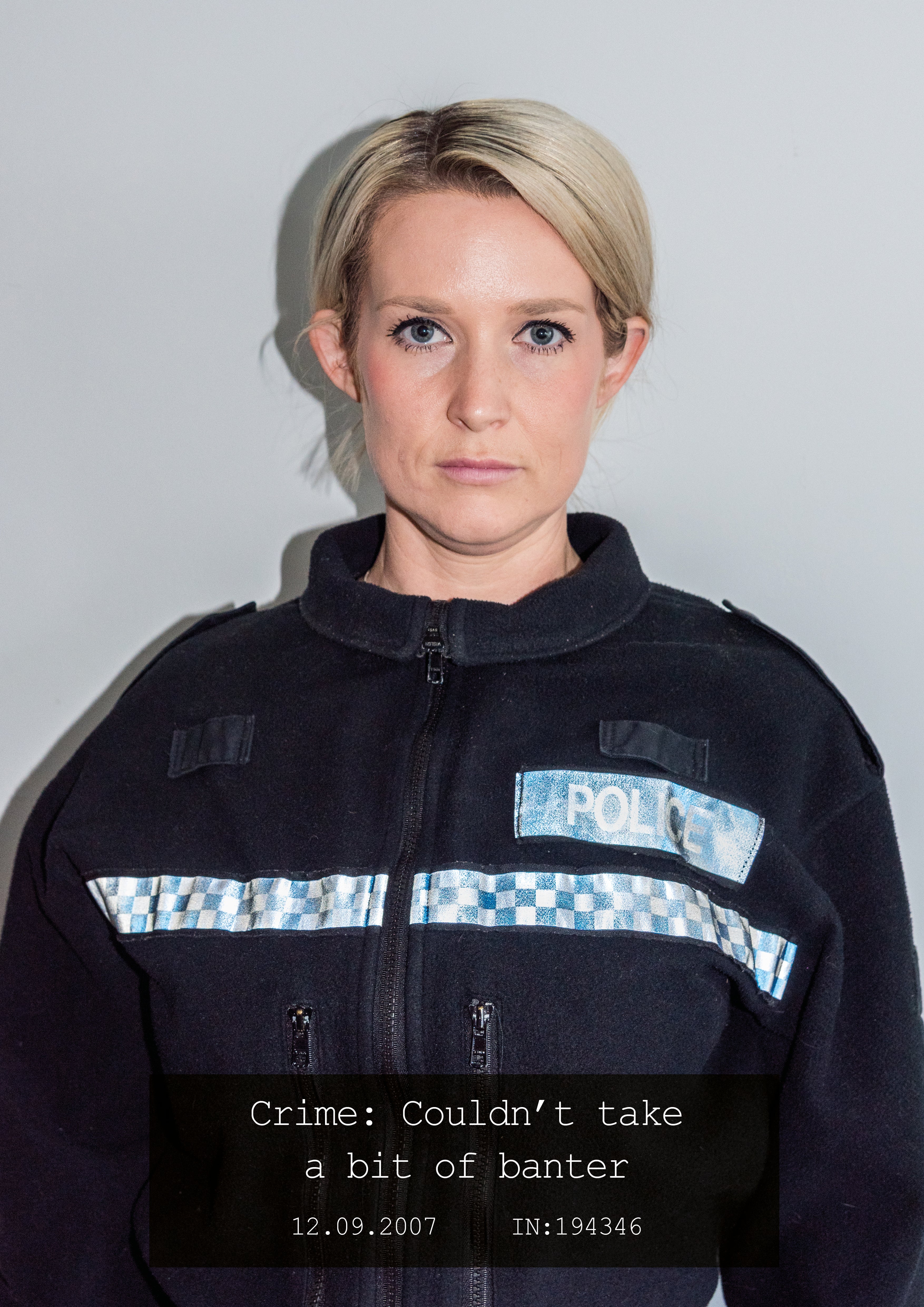‘I got out of the car and ran’: Ex-police officer says she was sexually assaulted by senior officer in forest at night
Exclusive: ‘They were rating appearances, saying women are fat. They would openly flirt with women,’ Rhianon Argent tells Maya Oppenheim


Your support helps us to tell the story
From reproductive rights to climate change to Big Tech, The Independent is on the ground when the story is developing. Whether it's investigating the financials of Elon Musk's pro-Trump PAC or producing our latest documentary, 'The A Word', which shines a light on the American women fighting for reproductive rights, we know how important it is to parse out the facts from the messaging.
At such a critical moment in US history, we need reporters on the ground. Your donation allows us to keep sending journalists to speak to both sides of the story.
The Independent is trusted by Americans across the entire political spectrum. And unlike many other quality news outlets, we choose not to lock Americans out of our reporting and analysis with paywalls. We believe quality journalism should be available to everyone, paid for by those who can afford it.
Your support makes all the difference.A former police officer says she was left traumatised after being sexually assaulted by an acting sergeant in a police car in a forest at night.
Rhianon Argent, who was previously a Police Constable for Hampshire Police, told The Independent she felt “intimidated” by the police officers who investigated the complaint of assault she made back in 2007.
Her comments come as the police has faced mounting criticism in the wake of Sarah Everard’s tragic rape and murder by a serving Metropolitan Police officer - with critics accusing the police of failing to tackle domestic abuse and sexual violence perpetrated by officers themselves.
Wayne Couzens, the officer who used coronavirus lockdown restrictions to falsely arrest Everard before kidnapping, raping and strangling her earlier in the year, was sentenced to a whole-life prison term last month.
Speaking to The Independent in an exclusive interview, Ms Argent claimed the police did not properly look into her complaint and even deleted text messages from him which were on her phone.
The 34-year-old said the mistreatment she endured after reporting the sexual assault fits into a wider context of misogyny among police officers she worked with - adding that she battled against sexism and felt like she was treated with very little respect.
Ms Argent, who left the force in 2013 and now works with domestic abuse and rape survivors in the voluntary sector, said she routinely witnessed colleagues making “misogynistic” and “sexualised” comments about female members of the public, as well as sometimes chatting them up.
Recalling the lead up to the night she was sexually assaulted, she said she remembers receiving messages from a random number while on a training course.
Ms Argent added: “I was 19 and he was much older than me and had children. He had been sending me crude messages and asking for photos for weeks leading up to it. He’d taken my phone number off the internal system.

“Then on one late shift from 2pm until midnight, he was responsible for choosing who worked together, and he chose for us to be together in one car. I remember having a fuzzy feeling in my tummy - thinking I’m not sure about this.
“He also chose the area that we were covering was furthest away from the station, and more isolated. He was trying to be quite flirty. He took off his police and stab vest.”
The officer then rolled his chair down so it went virtually flat and asked for a cuddle while lying flat, Ms Argent said.
She added: “I said no. Then there was the sexual assault. He took off my stab vest and fleece and touched my breasts through the gaps between my buttons and went completely onto the skin. And then he touched the down below area through my clothes.”
Ms Argent noted the ordeal was made particularly scary due to it taking place in an isolated place late at night - adding that car parks there were “notorious” for having no lighting or signal and commonly used by people coming to have sex.
“I asked him to take me back to the station,” she recalled. “I told him I wouldn’t grass on him. He took me to an industrial estate car park, I got out of the car and ran to the corner of the car park but there was nowhere to run. There were dense bushes you could not even walk through.”
In the end, she ended up being forced to walk back to the officer and he drove her to the station, she said.
Ms Argent explained she was frustrated with how the complaint she made against him was handled - adding that she handed her phone in during the investigation and it was returned with physical damage and messages from him deleted.
After she gave a lengthy video interview about the incident, she said a police officer concluded by saying: “Now I’m going to put it to you that you are lying about this whole thing”.
Ms Argent added: “I fled the room crying. He was found guilty of gross misconduct. There was a mark against his name for a year, but he carried on as if nothing happened.”
She said he was moved to a different station but it was nearby and they still shared some communal facilities.
Discussing her time as a police officer more generally, Ms Argent said she had a “really rough time” and would routinely listen to male officers “make unacceptable jokes that today would be considered to be sexist or sick.”
Ms Argent, who was in an all-male team of officers, added: “I would patrol around the pubs on Friday evenings with an all-male shift and hear them saying derogatory and nasty things about the women who’d been drinking.
“Listening to them talk about what they would do to them; all mostly married men with children. They were rating appearances, saying women are fat. They would openly flirt with women.”
Ms Argent argued the police can attract individuals who are “power-hungry” and relish in controlling others due to their own lack of self-esteem.
“Some would jump at the chance to go down to a fight at the pub but if there was a complaint from a rape victim, they will be very disinterested,” Ms Argent, whose portrait appears in an award-winning series of mugshots called Asking For it by photographer and activist Jayne Jackson, added.
A spokesperson for the police service where Ms Argent worked said the case was “investigated thoroughly at the time by our Professional Standards Department and the male officer faced a misconduct hearing and received a formal written warning”. The representative said they have “robust systems” in place to tackle the “abuse of position for sexual gain”.
Meanwhile, Ms Argent argued “not much bad happens” if officers “do something bad” as she warned “nobody is worried about what they say and do” due to the fact they “see themselves as untouchable”.
“Seeing how the Met failed to deal with Wayne Couzens robustly didn’t surprise me,” Ms Argent added. “In my opinion, the focus is nearly always on protecting the accused officer and keeping them employed.”




